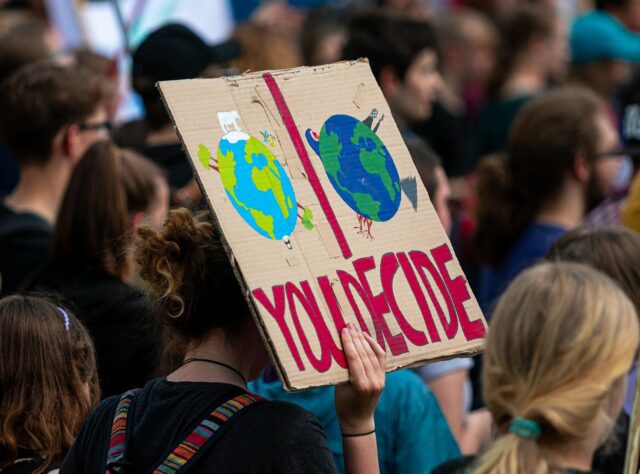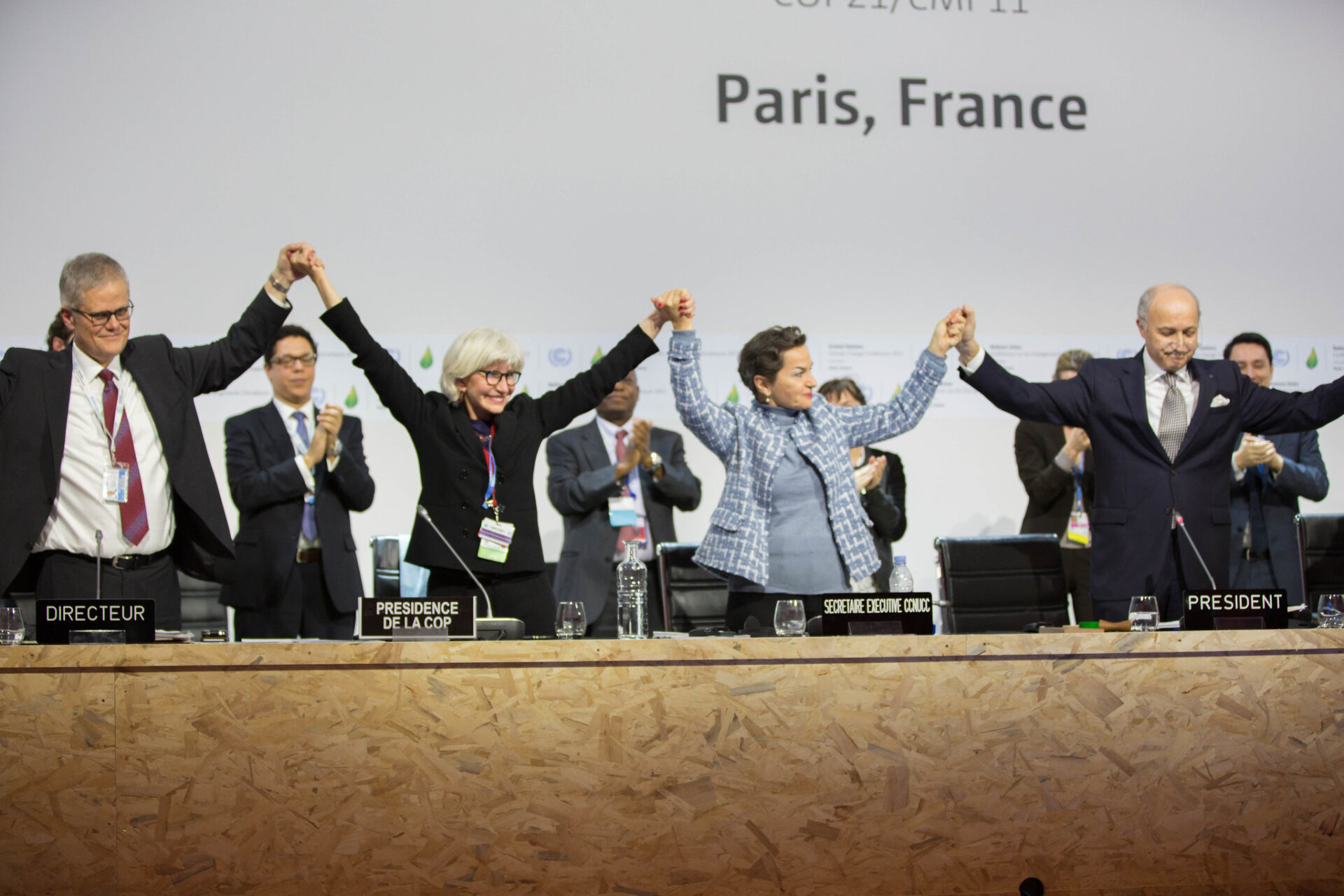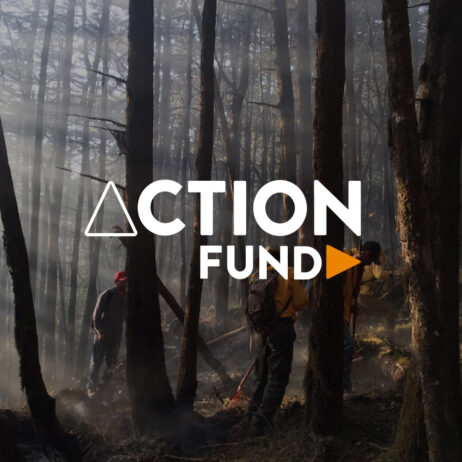
Scientists have warned that humankind has only this decade to solve the climate crisis, with the last six years confirmed as the six warmest on record. Credit: Dominic Wunderlich / Pixabay
In a two-part series, World Land Trust (WLT) CEO Catherine Barnard talks about the significance of 2021 in the ongoing efforts to tackle the climate crisis with the urgency it requires, and highlights how we can all help against this existential threat – by saving forests around the world.
The climate crisis is no secret. The last six years (2015 – 2020) were the six warmest on record, and temperatures continue to rise. Scientists have warned we’re running out of time to prevent catastrophic climate change – emissions must be cut by 45% by 2030, the same year for which new targets have been set to halt biodiversity loss after the failure to meet 2020’s targets.
We cannot afford another lost decade if we are to have any chance against the truly unprecedented rate of climate change and biodiversity loss we are now witnessing. As I wrote last September, targets alone won’t get us there – saving our shared home will require proper financial resources and treating these issues like the cross-sectoral challenges they have always been.
2021 is shaping up to be crucial in setting the right course for this decade and beyond. Discussions on how to ensure global biodiversity targets are met this time – the failure to reach them in 2020 followed that of 2010 – will take centre stage at the 15th meeting of the Convention on Biological Diversity (CBD) in Kunming in May, followed by Glasgow hosting the 26th UN Climate Change Conference (COP26) in November. The decisions, and especially the actions, that result from either summit will be pivotal if we are to respond to the biodiversity and climate crises at the necessary scale.

The protection of tropical forests such as Ecuador’s Nangaritza – safeguarded by WLT partner NCE – is seen by scientists as a priority strategy to defeat catastrophic global warming. Credit: NCE/Fabián Rodas
As this make-or-break year begins, it is heartening to look back on 2020 and take stock of our supporters’ incredible commitment to conservation. In spite of all the challenges the past 12 months threw at all of us, your belief in protecting the natural world never wavered. By turning out in such large numbers, you were able to achieve hugely consequential conservation victories that not only boost biodiversity, but also bring lasting benefits to the global climate.
With last year’s preservation of carbon-rich forests in Cameroon, Colombia and the Ecuadorian Chocó, our supporters delivered the kind of nature-based solutions that will be needed to prevent a climate breakdown. Meanwhile, the remarkably quick turnaround of COVID-19 vaccines has shown us what humanity can accomplish when we set our collective will and effort to a common goal. This was a truly spectacular achievement, and if we harness that same energy and sense of purpose then perhaps 2021 can mark a turning point in addressing the climate and extinction crises that threaten our future survival as a species.
We hope you join us in feeling energised for what will surely be a vitally important year.
Holding our leaders accountable
This year’s climate change conference (COP26) could not be more important. Five years on from the signing of the Paris Agreement, world leaders will meet to assess how effective their pledges have been to reduce emissions – the first real test of whether grand promises really can translate into actual climate action on a global scale. (Spoiler: not good enough so far.)
The UK government must show real leadership this year as they host this year’s conference, so that COP26 seizes the limited opportunity we have to prevent catastrophic changes to the Earth. We cannot afford to continue setting distant targets and then not dedicate sufficient energies to them until it’s too late. We cannot keep passing this problem of our own making to our children to solve.

2021’s climate talks will address a crucial question: Have countries made good so far on the emission cuts they pledged under the Paris Agreement of 2015? Credit: UNclimatechange / Flickr
I am heartened that Prime Minister Boris Johnson was one of many heads of state to sign the Leaders’ Pledge for Nature in September of last year. But the UK now needs to demonstrate that pledged leadership by truly mobilising a global climate response this year at COP26. As a UK-based organisation, we shall watch their actions closely and judge them accordingly.
Nevertheless, this is not the job of any one government, and we must make sure to hold all countries accountable for these commitments. If governments do not follow through on delivering tangible change, the Earth will never see the climate benefits that it needs to heal. We may have just one voice each, but I have heard the chorus getting louder each year – and we cannot relent. We must be heard.
Along with sounding our voice, we must take action now. Setting targets into the future is important but, as I said above, not if we leave it to those who follow us to somehow meet them. Action now is more important than some hoped-for possible action in the future. We must not let promises for the future engender any kind of complacency. No matter how ambitious the pledge, no matter where it comes from, all must be held to the same standard – we need to act before our climate collapses.
World Land Trust are in a privileged position when it comes to climate action. The funds we raise allow our partners to secure critically important habitats around the world, preserving biodiversity while protecting “carbon sink” forests that mitigate climate change. Whether you have £5 to spare to plant a tree or plan to offset the unavoidable residual emissions of your entire company, you can make a real difference with WLT. We hope you’ll become a WLT supporter this year and help us to save the natural world, so that by 2022 our planet will be on the right course – that will truly be worth celebrating.
Dr. Catherine Barnard, CEO of WLT
In the second part of this blog series, Jonathan discusses how individuals and businesses can help in this make-or-break year for climate change. Click here to give it a read.

